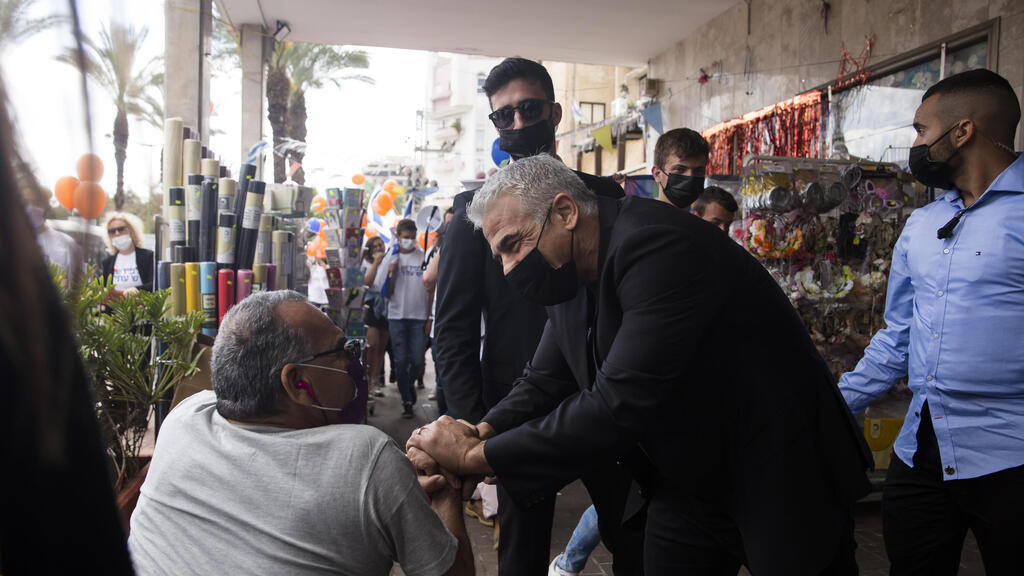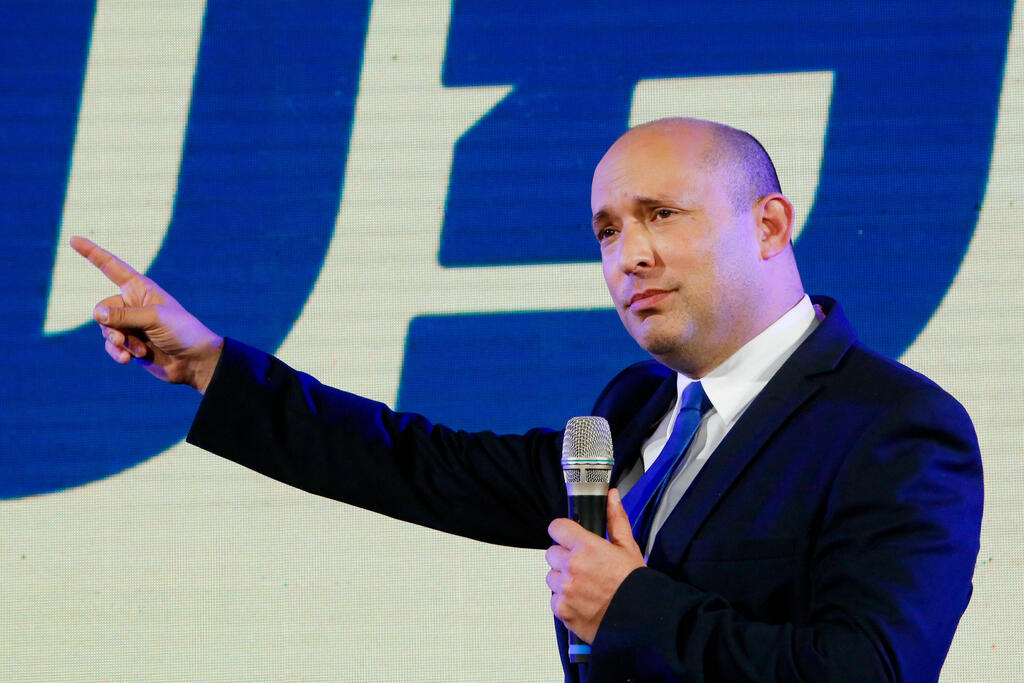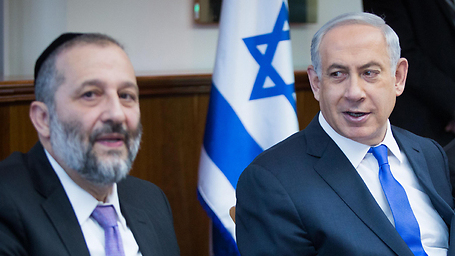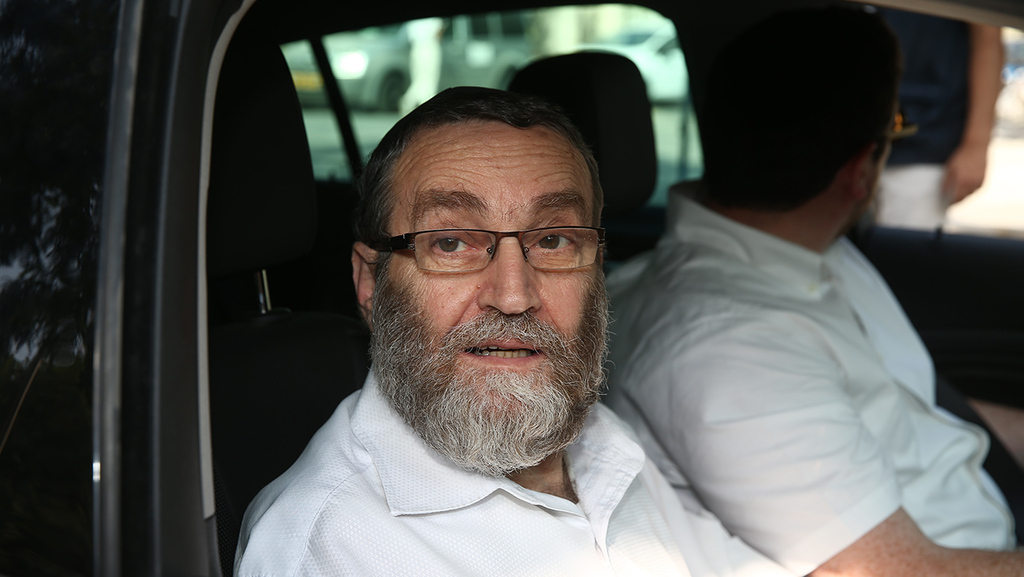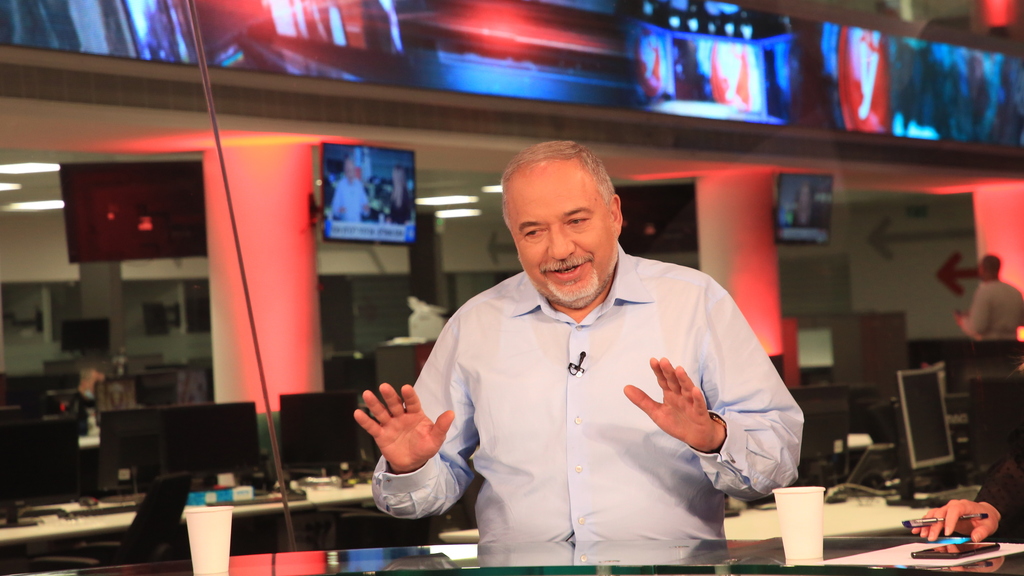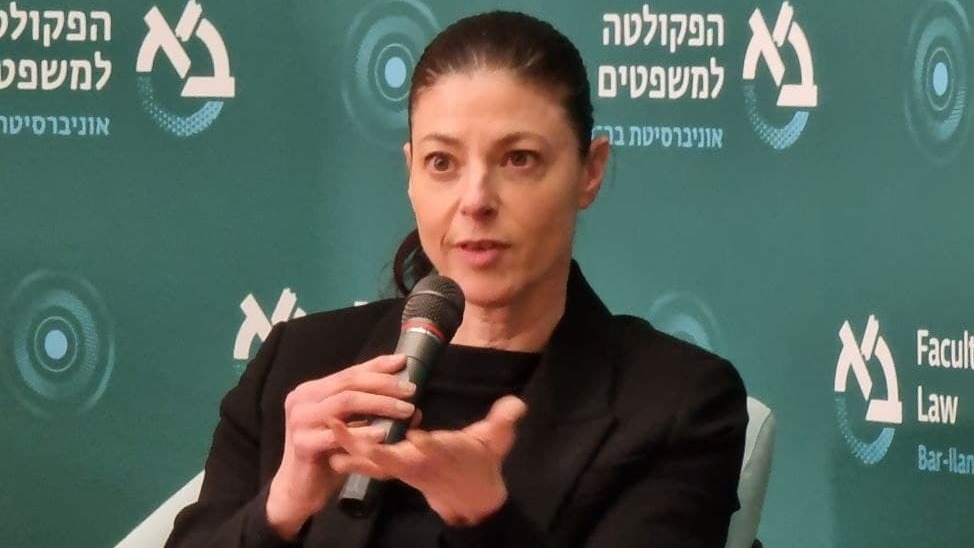With two days until Israelis go to the polls for the fourth time in two years, Israel's 24 parties running for the next Knesset were making their final push Sunday to attract voters, despite difficulties due to the coronavirus pandemic.
Parties were also battling general fatigue among voters, aversion to politicians and their "dirty tricks," after what was seen as the failures of the unity government that was established after the last campaign in March 2020.
11 View gallery
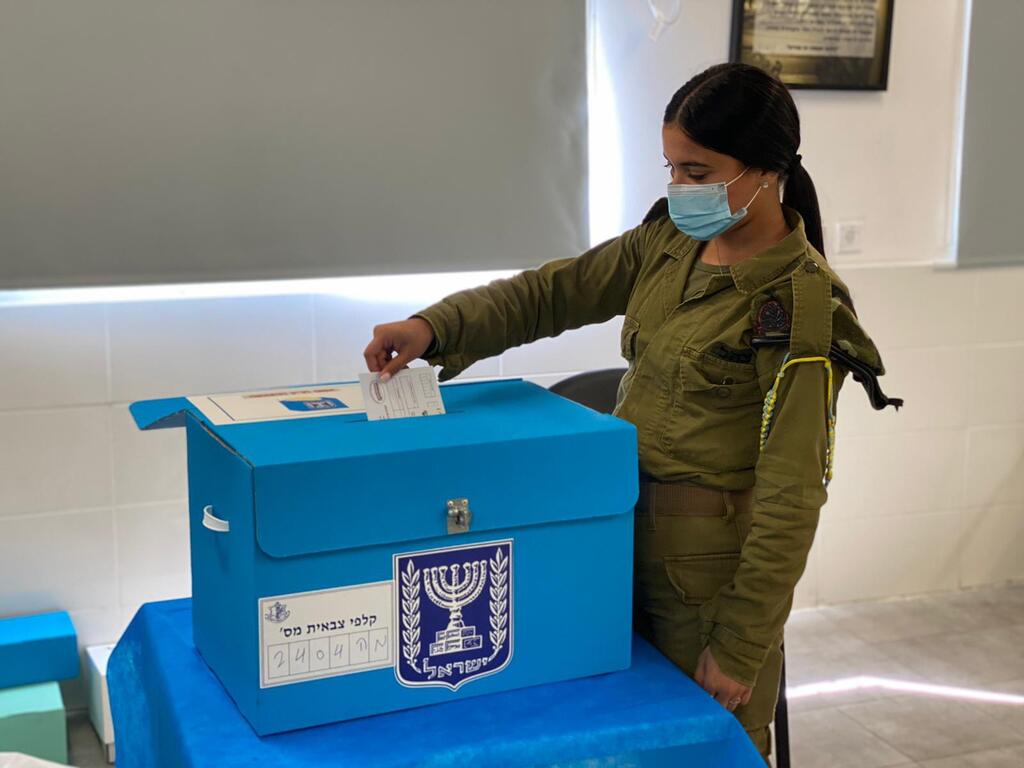

An IDF soldier casts her early ballot for the March 23 elections at a military polling station
(Photo: IDF Spokesperson's Unit)
Prime Minister Benjamin Netanyahu's Likud Party was to focus on what it said was a choice between the incumbent and Yesh Atid leader Yair Lapid.
They were also attempting to raise Israelis' hopes that the coronavirus pandemic would soon be a thing of the past.
Netanyahu was set to remind people of the success of the success of the campaign in fighting COVID-19, while promising to fix the economic crisis caused by the pandemic with the same measure of success.
11 View gallery
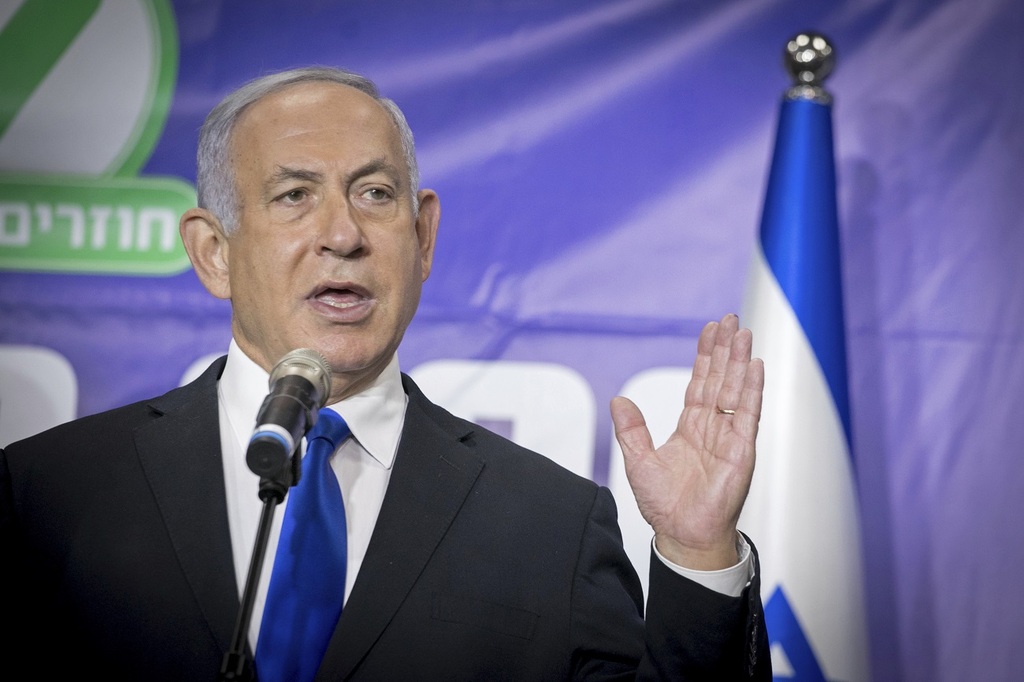

Prime Minister Benjamin Netanyahu speaking at a coronavirus vaccination clinic
(Photo: AP)
He was to claim that he alone is able to fix the economy after having done so in the past.
Netanyahu would also target right-wing voters who support his rivals from the bloc, primarily former Likud member Gideon Saar leads the New Hope party and Yamina leader Naftali Bennett, his former ally and defense minister.
Senior members of Likud were to join Netanyahu at campaign events in Likud strongholds and in targeting undecided voters.
Yair Lapid, whose Yesh Atid party is second to Likud in projected seats according to recent polls, was to repeat his campaign promise to bring about a "sane government."
"Let sanity prevail," Yesh Atid said as it placed the need to oust Netanyahu at the forefront of its campaign. Lapid told Ynet on Sunday that he would forfeit his shot at the prime minister's chair if it meant thwarting Netanyahu's return to the post.
The party was also working to bolster voter turnout in areas with substantial support for the party.
Party activists have been targeting undecided voters and even attempting to rally support at retirement homes and among members of the kibbutz movement.
Yamina meanwhile has increased its media presence promoting the party's economic plan.
Bennett, who reminds voters at every opportunity of his success as a high-tech guru, is promising to "fight bureaucracy" and lower both taxes and cost of living.
Bennett was planning to highlight the support some small business owners have pledged to him and continue to call for leadership change, despite not having committed to not be party of a Netanyahu-led government.
Gideon Saar's New Hope party was to emphasize the need for a right-wing bloc that is respectful of the law and the state institutions, as it was under the leadership of former Likud prime ministers Menachem Begin and Yitzhak Shamir.
The party was also claiming that Saar alone can unite parties opposing Netanyahu and enable an alternative government to be formed.
11 View gallery
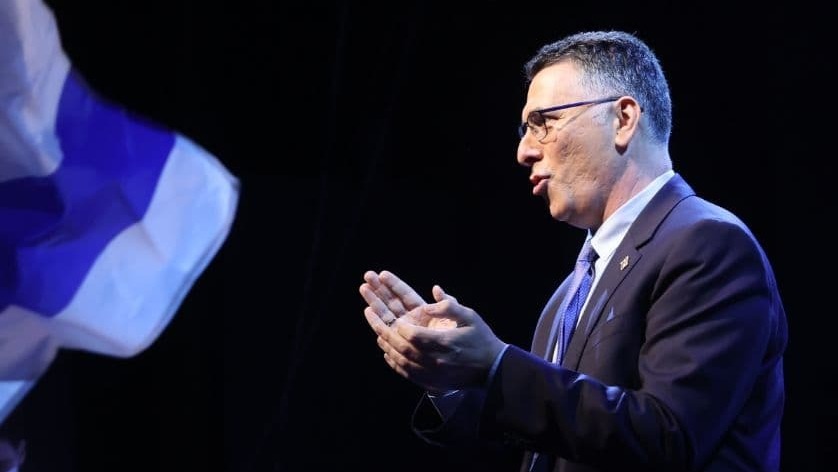

New Hope leader Gideon Saar campaigning in Rishon Lezion last week
(Photo: Moti Kimchi)
They were also targeting undecided voters on the right who support ousting Netanyahu.
The predominately Arab Joint List, which lost one of its alliance members in the runup to the election, has been campaigning mostly online in order to prevent violations of coronavirus regulations in the Arab sector, where morbidity is still relatively high and vaccination numbers are low.
The ultra-Orthodox Shas Party under the leadership of Aryeh Deri was placing popular rabbis at party headquarters to help reach out to constituents. The party enjoys the support not only of Haredi voters, but also among less observant Israelis from the Sephardic community.
The party was sticking with the campaign message that support for Shas was also support for Netanyahu, who is popular among the party's voters.
"We are offering two for the price of one," the campaign said.
The other ultra-Orthodox party, United Torah Judaism, was planning to hold a mass rally despite the concerns within the party over violating health directives on social gatherings.
The party has drafted in respected religious leaders for its digital campaign, fearing voters would shift their support to the extreme-right Religious Zionist party and its leader Bezalel Smotrich, after UTJ received criticism from its base over the restrictions imposed on the community by the government of which it was a part.
Party officials also noted a degree of indifference unseen in previous election campaigns, and hoped to motivate their public to come out and vote using the need to fight "anti-Haredi" sentiments among the general public that they say have increased during the pandemic.
The party was also using anti-Haredi slogans from Avigdor Liberman's Yisrael Beytenu party to spark outrage in the community.
Yisrael Beytenu was targeting its traditional base among the Russian-speaking electorate as well as the general public with the campaign promises to form a government without the ultra-Orthodox parties.
"Secular Israelis come out to vote," the party slogan reads, banking on the public's anger at the government's lack of enforcement of coronavirus laws in Haredi cities and neighborhoods.
The Labor Party was continuing to place its new leader Merav Michaeli in the limelight.
Michaeli's campaign pits her integrity against that of Netanyahu and other politicians, and targets women voters who may be motivated to support the sole female party leader.
The Religious Zionist Party, which includes extremist Itamar Ben-Gvir, has sent some 1,000 yeshiva students onto the streets in a final effort to increase support and make it across the threshold.
The party's message is that Netanyahu would not be able to form a right-wing government without them and the future of the right-wing rule will be in danger if they fail to win the 3.25% of the overall vote needed to claim the minimum four seats in the Knesset.
It is also targeting ultra-Orthodox voters who indicated they were disappointed in their own representatives who they say did not protect them during the coronavirus pandemic and enabled the secular public's attack on them.
Defense Minister Benny Gantz's Blue & White party, which currently has 12 seats, is fighting to stay in the game. It was planning to highlight the latest polls indicating its chances of passing the threshold have improved and claiming it alone stopped Netanyahu from passing legislation that would have been destructive to Israel's democracy.
Now more than ever, the party claims, Blue & White must be part of the opposition to Netanyahu, despite joining his coalition after the last elections.
11 View gallery
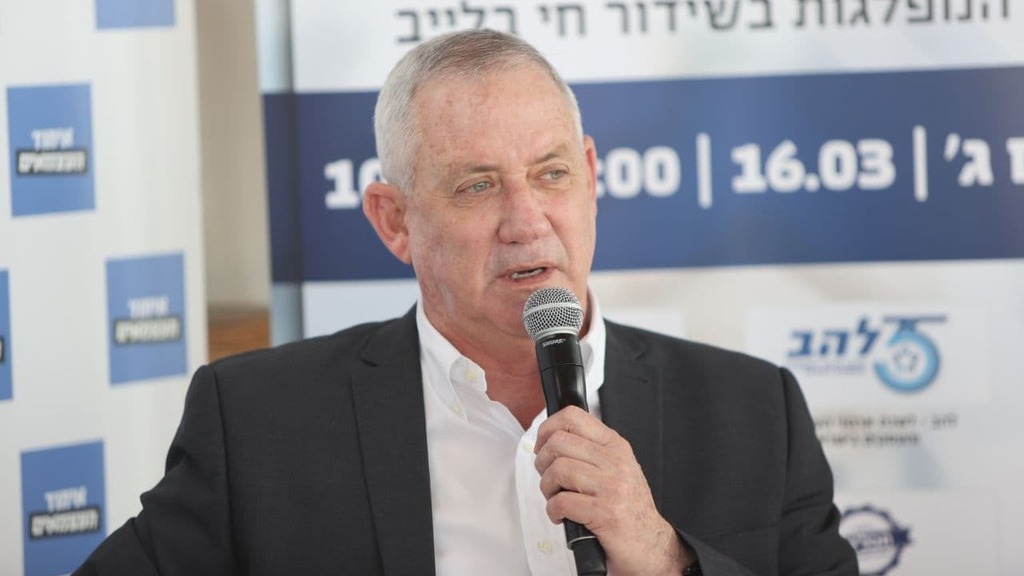

Blue & White leader Benny Gantz campaigning in Tel Aviv last week
(Photo: Moti Kimchi)
Meretz was continuing to warn that it may not be in the next Knesset if its supporters stayed away on Tuesday or gave their votes to Labor.
"It is a Knesset with Meretz or a government with Ben-Gvir," their campaign says, stressing that the Religious Zionist party is homophobic and against equal rights for all citizens.
11 View gallery
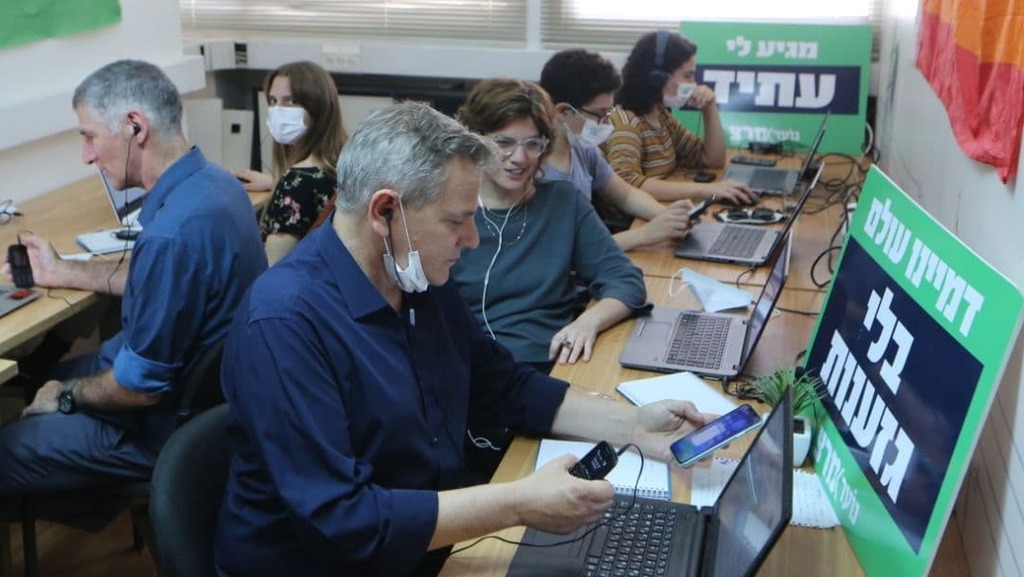

Meretz head Nitzan Horowitz at party HQ on Sunday to urge voters to support the party on Election Day
(Photo: Moti Kimchi)
The party was also increasing its presence and efforts in the Arab sector.
The Ra'am Party under Mansour Abbas, which quit the Joint List and appeared to express support for Netanyahu, was pushing their campaign message that support of the government would bring wins for the Arab sector.
They were continuing small events in the north and in the south after mass rallies in the Arab sector could not be held due to high morbidity and a low vaccination rate in comparison to the general population.


